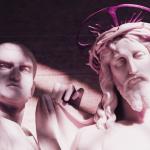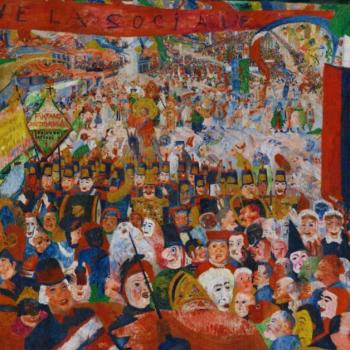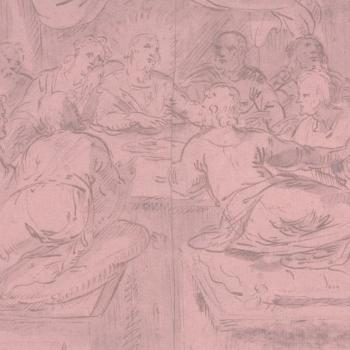
What does it mean to engage faith from a post-Christian perspective? Is that even possible? Viable? What does post-Christian even mean? There is a generation of faith crisis before us (which ultimately gives way to identity crisis). How are we engaging it?
Over the last few years the deconstruction community has really brought the crisis of faith to the fore. The stats, surveys, and data that we have seen coming out of various studies, not least of which the landmark “America’s Changing Religious Landscape” out of Pew Research Center in 2015, all point in one direction. It is one of crisis and crumble. Churches, where we can really see the manifestation of such studies, have had this on their radar for a quite a while.
In 2012, Pew Research debuted what they called the nones and dones in their article, “‘Nones’ on the Rise. All of the sudden these two small words surged through Christian communities as the stats seemed dire and critical for the future of belief. Pastors and Christian leaders everywhere were trying to mobilize at an attempt to address these nones and dones that were walking in and out of their churches and, of course, in and out of Christianity. A few years later, in the aforementioned study, we saw the breakdown of what the nones and dones really look like, the effect it was having on America’s religious and Christian landscape, and what the projections for the future were if we were to continue on at this rate.
Again, this study was sited for years in churches and religious environments as to light a fire under all who might hear. Maybe something would be done about it. New programming was thought up. More ‘contemporary’ services, a better social media presence, community activity and organizing, etc. While the methodologies started to evolve, albeit not away from the church building being central, theologies did not. The same old tired and past-their-sell-by date ideas and notions of God endured. The chasm between the nature of the God who lives in the sky and our values ‘down below’ ever widened. God still seemed far away and refusing to intervene, which is the whole point of believing in an interventionist God.
This past September, Pew Research released a new study, “Modeling the Future of Religion in America.” This was a survey done on “religious switching” in which the forecast is as follows: “If recent trends in religious switching continue, Christians could make up less than half of the U.S. population within a few decades.”
Back to the deconstruction conversation we have seen being had on social media over the last few years.
When it comes to business as usual, things aren’t working. We have taken something meant to bring meaning to our ever changing lives, a mechanism of understanding ourselves and our stories in the world, and we have enshrined it. We have made it immobile, rigid, and unadaptable to an ever evolving humanity living in a multiplicity of realities.
The sky God can’t hold anymore. It vaporizes into the background to reveal a particular brand of smoke and mirrors and we are left holding the bag. And what is that bag? Our broken identities and stories, and we are wondering where to go with it all.
The deconstruction community has taken important, vital conversations and brought them to the surface. It has forced the Christian world to reckon with its spaces, its theologies, how it treats people, and how it wants to show up in the world.
Usually, when traditional Christianity is no longer a viable option for someone for a variety of reasons they don’t see any other way to engage faith, even though they may want to. We have typically been presented with two options: Christianity as we know it or militant atheism. We get to believe or we get to not believe. But the point is that there is nothing in between, or at least nothing is offered in between. So we either give up the story and meaning making we have been cultivating most of our lives to believe…in nothing. Or we remain in a belief system that forces us to compromise the integrity of so much of what makes us human.
The question is how to move off of that spectrum that bounces us between belief and non-belief. The sliding scale that asks belief in the God who exists on high…or not. Is it possible to even engage faith or Christianity without a moral and personal God and savior at the heart of it?
In my new book, Safer than the Known Way: A Post-Christian Journey, I have addressed these questions and more as I talk about what it might look like to engage Christianity as we are post some traditional notions of it.
After experiencing a sort of death of God when it comes to a particular construct of God, what does it look like to engage faith and Christianity, while resisting the temptation to bring the same type of God forward, but just giving them a nicer nature and personality?
We often get caught in the trap of moving from one God in the sky to another. We just make that God more generous and loving and attribute to them values of social justice and care. While this sort of an ethos is a noble one, it is still one of a God who boasts of being and agency, they are just playing for the other team.
What if we were able to move forward in a faith, and an engagement of that faith, that allowed us to bypass signing our name on the dotted line when it comes to how God might exist? What happens when we take the sky God off the table? Whether it be the image of the conservative, fundamentalist one, or the one that is new and improved a la progressive and liberal Christianity. We find that we might be free to explore a faith that belief always wished it could be.
What is the problem and how did we get here? What are some new theological imaginations for the present and future? Is it even possible to talk about god apart of object, being, agency, and personhood? Can we engage Christianity in new ways while being past it? And, of course, what does this mean for Jesus, what to do with him, and how we interact with his story, legacy, imperatives and the impulses that arise from the gospels?
This book is an offering to an entire generation that is asking, “what’s next?” From new theological frameworks, to rearticulating and reconfiguring how we talk about some of this stuff. To what it might mean to be a post-theist Christian, as opposed to theist or atheist and why this might be helpful. To why the curious language of post-Christian. I hope you will take a chance on my new book as I invite us all on a journey. One that asks us to fall off the map of all that we once knew and think we know. It is an invitation to head to a horizon with no line and to follow a compass that doesn’t point north. It is a path I have found to be safer than the known way and the promise of faith after belief–faith from a post-Christian perspective.













